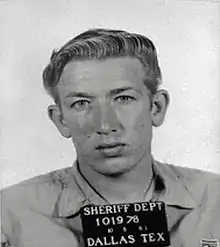1941 in the United States
Events from the year 1941 in the United States. At the end of this year, the United States officially enters World War II by declaring war on the Empire of Japan following the attack on Pearl Harbor.
| |||||
| Decades: |
| ||||
|---|---|---|---|---|---|
| See also: | |||||
Incumbents
Federal Government
- President: Franklin D. Roosevelt (D-New York)
- Vice President: John Nance Garner (D-Texas) (until January 20), Henry A. Wallace (D-Iowa) (starting January 20)
- Chief Justice: Charles Evans Hughes (New York) (until June 30), Harlan F. Stone (New York) (starting July 3)
- Speaker of the House of Representatives: Sam Rayburn (D-Texas)
- Senate Majority Leader: Alben W. Barkley (D-Kentucky)
- Congress: 76th (until January 3), 77th (starting January 3)
Events
January


- January 4 – The short subject Elmer's Pet Rabbit is released, marking the second appearance of Bugs Bunny, and also the first to have his name on a title card.
- January 6
- Four Freedoms speech: During his State of the Union address, President Roosevelt presents his Four Freedoms as fundamental global human rights.
- The keel of the USS Missouri is laid at the New York Navy Yard in Brooklyn.
- January 10 – Lend-Lease is introduced into the U.S. Congress.
- January 13 – All persons born in Puerto Rico since this day are declared U.S. citizens by birth, through U.S. federal law 8 U.S.C. § 1402.
- January 20 – Chief Justice Charles Evans Hughes swears in President Franklin D. Roosevelt for his third term. Henry A. Wallace is sworn in as Vice President of the United States.
- January 23 – Aviator Charles Lindbergh testifies before the U.S. Congress and recommends that the United States negotiate a neutrality pact with Adolf Hitler.
- January 27 – World War II – Attack on Pearl Harbor: U.S. Ambassador to Japan Joseph Grew passes on to Washington, D.C. a rumor overheard at a diplomatic reception about a planned surprise attack upon Pearl Harbor, Hawaii.
February
- February 4 – World War II: The United Service Organization (USO) is created to entertain American troops.
- February 8 – World War II: The U.S. House of Representatives passes the Lend-Lease Act (260–165).
- February 9 – Winston Churchill, in a worldwide broadcast, asks the United States to show its support by sending arms to the British: "Give us the tools, and we will finish the job."
- February 14 – World War II – Attack on Pearl Harbor: Admiral Kichisaburō Nomura begins his duties as Japanese ambassador to the United States.
March

- March – Captain America Comics #1 issues the first Captain America & Bucky comic.
- March 1
- W47NV begins operations in Nashville, Tennessee, becoming the first fully licensed commercial FM radio station.
- Arthur L. Bristol becomes Rear Admiral for the United States Navy's Support Force, Atlantic Fleet.
- March 17 – National Gallery of Art is officially opened by President Franklin D. Roosevelt.
- March 22 – Washington state's Grand Coulee Dam begins to generate electricity.
- March 27 – World War II – Attack on Pearl Harbor: Japanese spy Takeo Yoshikawa arrives in Honolulu, Hawaii and begins to study the United States fleet at Pearl Harbor.
- March 30 – All German, Italian and Danish ships anchored in United States waters are taken into "protective custody".
April
- April 9 – The U.S. acquires full military defense rights in Greenland.
- April 10 – World War II: The U.S. destroyer Niblack, while picking up survivors from a sunken Dutch freighter, drops depth charges on a German U-boat (the first "shot in anger" fired by America against Germany).
- April 15 – World War II: The U.S. begins shipping Lend-Lease aid to China.
- April 23 – The America First Committee holds its first mass rally in New York City, with Charles Lindbergh as keynote speaker.
- April 25 – Franklin D. Roosevelt, at his regular press conference, criticizes Charles Lindbergh by comparing him to the Copperheads of the Civil War period. In response, Lindbergh resigns his commission in the U.S. Army Air Corps Reserve on April 28.
May
- May – Woody Guthrie records the Columbia River Ballads.
- May 1
- Orson Welles' film Citizen Kane premieres in New York City.
- The first Series E "War Bonds" and Defense Savings Stamps go on sale in the United States, to help fund the greatly increased production of military equipment.
- May 6 – At California's March Field, entertainer Bob Hope performs his first USO Show.
- May 15 – Joe DiMaggio's 56-game hitting streak begins as the New York Yankee center fielder goes one for 4 against Chicago White Sox pitcher Eddie Smith.
- May 21 – World War II: 950 miles off the coast of Brazil, the freighter SS Robin Moor becomes the first United States (neutral) ship sunk by a German U-boat, after its crew have been allowed to disembark.
- May 27 – World War II: President Roosevelt proclaims an "unlimited national emergency."
June
- June 14 – All German and Italian assets in the United States are frozen.
- June 16 – All German and Italian consulates in the United States are ordered closed and their staffs to leave the country by July 10.
- June 20
- The United States Army Air Forces comes into being, taking over the former United States Army Air Corps.
- Walt Disney's live-action animated feature The Reluctant Dragon is released.
July
- July 1 – Mammoth Cave National Park is authorized by Congress.
- July 7 – World War II: American forces take over the defense of Iceland from the British.
- July 26
- World War II: In response to the Japanese occupation of French Indochina, U.S. President Franklin D. Roosevelt orders the seizure of all Japanese assets in the United States.
- World War II: General Douglas MacArthur is named commander of all U.S. forces in the Philippines; the Philippines Army is ordered nationalized by President Roosevelt.
- July 30 – World War II: The U.S. gunboat Tutuila is attacked by Japanese aircraft while anchored in the Yangtze River at Chungking. Japan apologizes for the incident the following day.
August
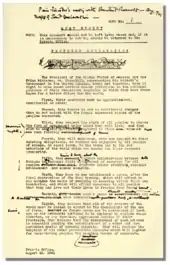
- August 1 – U.S. President Franklin D. Roosevelt bans the export of U.S. aviation fuel from the western hemisphere except to Britain and allies.
- August 6 – Six-year-old Elaine Esposito undergoes an appendectomy and lapses into a coma that lasts for a record-breaking 37 years until her death in 1978.
- August 9 – Franklin D. Roosevelt and Winston Churchill meet at Argentia, Newfoundland and Labrador. The Atlantic Charter is created as a result.
- August 12 – By one vote (203–202), the U.S. House of Representatives passes legislation extending the draft period for selectees and the National Guard from 1 year to 30 months.
- August 31 – The Great Gildersleeve debuts on NBC Radio.
September

- September 4 – World War II: The USS Greer becomes the first United States Navy ship fired upon by a German submarine in the war, even though the United States is a neutral power. Tension heightens between the nations as a result.
- September 11 – World War II: Charles Lindbergh, at an America First Committee rally in Des Moines, Iowa, accuses "the British, the Jewish, and the Roosevelt administration" of leading the United States toward war. Widespread condemnation of Lindbergh follows.
- September 27 – The first liberty ship, the SS Patrick Henry, is launched at Baltimore.
- September 29 – World War II: The first Moscow Conference begins; U.S. representative Averell Harriman and British representative Lord Beaverbrook meet with Soviet foreign minister Molotov to arrange urgent assistance for Russia.
- September – First production P38E Lightning fighter produced by Lockheed.
October
- October 6 – The New York Yankees defeat the Brooklyn Dodgers, 4 games to 1, to win their 9th World Series Title.
- October 17 – World War II: The destroyer USS Kearny is torpedoed and damaged by German submarine U-568 off Iceland, killing 11 sailors (the first American military casualties of the war).
- October 23 – Walt Disney's fourth animated film, Dumbo, is released to recoup the initial financial losses of both Pinocchio and Fantasia the year prior.
- October 30 – World War II: Franklin D. Roosevelt approves US$1 billion in Lend-Lease aid to the Soviet Union.
- October 31
- After 14 years, work ceases on sculpting Mount Rushmore National Memorial.
- World War II: The destroyer USS Reuben James is torpedoed and sunk by German submarine U-552 off Iceland, killing more than 100 U.S. Navy sailors.
November
- November 10 – In a speech at the Mansion House, London, Winston Churchill promises, "should the United States become involved in war with Japan, the British declaration will follow within the hour."
- November 14
- World War II – Attack on Pearl Harbor: Japanese diplomat Saburō Kurusu arrives in the United States to assist Ambassador Kichisaburō Nomura in peace negotiations.
- The 5.4 Ms Los Angeles earthquake severely affected the Gardena–Torrance area of California with a maximum Mercalli intensity of VIII (Severe), causing $1.1 million in financial losses, but no injuries or deaths.
- November 17 – World War II – Attack on Pearl Harbor: Joseph Grew, the United States ambassador to Japan, cables to Washington, D.C., a warning that Japan may strike suddenly and unexpectedly at any time.
- November 24 – World War II: The United States grants Lend-Lease to the Free French.
- November 26
- U.S. President Franklin D. Roosevelt signs a bill establishing the 4th Thursday in November as Thanksgiving Day in the United States (this partly reverses a 1939 action by Roosevelt that changed the celebration of Thanksgiving to the third Thursday of November).
- The Hull note ultimatum is delivered to Japan by the United States.
- November 27
- A group of young men stop traffic on U.S. Highway 99 south of Yreka, California, handing out fliers proclaiming the establishment of the State of Jefferson.
- World War II – Attack on Pearl Harbor: All U.S. military forces in Asia and the Pacific are placed on war alert.
December
_burning_after_the_Japanese_attack_on_Pearl_Harbor_-_NARA_195617_-_Edit.jpg.webp)

- Wonder Woman comic begins publication.
- December 1 – Fiorello La Guardia, Mayor of New York City and Director of the Office of Civilian Defense, signs Administrative Order 9, creating the Civil Air Patrol under the authority of the United States Army Air Forces.
- December 4 – The State of Jefferson is declared in Yreka, California, with John C. Childs as a governor.
- December 6 – World War II: Attack on Pearl Harbor – Franklin D. Roosevelt makes a personal peace appeal to Emperor Hirohito of Japan.
- December 7 (December 8, Japan Standard Time) – Attack on Pearl Harbor: The Imperial Japanese Navy Air Service stages a military strike on the United States Navy fleet at Pearl Harbor in the Territory of Hawaii, thus drawing the U.S. into World War II.
- December 8
- World War II: Franklin Roosevelt gives his Infamy Speech. Within an hour the United States officially declares war on Japan.
- The exhibition American Negro Art: Nineteenth and Twentieth Centuries opens in Edith Halpert's Downtown Gallery in New York City.
- December 11 – World War II:
- American forces repel a Japanese landing attempt at Wake Island.
- Germany and Italy declare war on the United States. The U.S. responds in kind.
- December 12 – World War II:
- Hungary and Romania declare war on the United States.
- The U.S. seizes the French transatlantic liner SS Normandie.
- December 19 – The United States Naval Academy in Annapolis, Maryland graduates its "Class of 1942" a semester early so as to induct the graduating students without delay into the U.S. Navy and/or Marine Corps as officers, for immediate stationing in the war.[1]
- December 20 – Admiral Ernest King is appointed Commander-in-Chief of the U.S. fleet.
- December 23 – World War II: A second Japanese landing attempt on Wake Island is successful and the American garrison surrenders after a full night and morning of fighting.
- December 26 – World War II: Winston Churchill becomes the first British Prime Minister to address a joint session of the U.S. Congress.
Ongoing
- World War II, U.S. involvement (1941–1945)
Undated
- The Centenary College Choir (America's Singing Ambassadors) is formed by Dr. A. C. Voran at Centenary College of Louisiana.
- This calendar year is the wettest on record in Utah with 20.33 inches (516.4 mm),[2] Colorado with 25.52 inches (648.2 mm)[3] and New Mexico with 26.57 inches (674.9 mm) against a mean of only 13.74 inches or 349.0 millimetres.[4]
- In contrast to the wetness in the West, it is the driest calendar year in Tennessee with only 36.44 inches (925.6 mm) versus a mean of 50.97 inches or 1,294.6 millimetres[5] and New Hampshire with 32.65 inches (829.3 mm) against a mean of 42.74 inches or 1,085.6 millimetres.[6]
Sport
- April 12 – The Boston Bruins won their third Stanley Cup, and last until 1970, defeating the Detroit Red Wings 4 games to 0. The deciding Game 4 was played at Detroit's Olympia Arena.
Baseball fans across the nation witnessed not one, but two of the most amazing individual efforts and achievements the game has ever known. The two measures recorded during the 1941 campaign both stand to this day and are regarded by practically all, even the most casual of fans, to be unattainable in the game today. 1941 saw the great Joltin' Joe DiMaggio step up to the plate in 56 consecutive baseball games and hit safely to break a record that had withstood the test of time since 1897 when Wee Willie Keeler totaled 45 consecutive games hitting safely over the course of the 1896 and 97 seasons. The Splendid Splinter, Ted Williams, also treated baseball fans to a feat that has also barely been threatened since by having a season for the ages. During the 1941 Teddy Ballgame managed to record a batting average over .400 by finishing the season with an unparalleled .406 batting average. Although his average for the season is not the single season record for baseball, no player has hit .400 or better since.
Births
January
- January 1 – Marshall "Rock" Jones, African-American bass player (Ohio Players) (d. 2016)
- January 4
- Maureen Reagan, American political activist (d. 2001)
- John Bennett Perry, American actor, singer and former model
- January 5
- Harvey Hall, American businessman, politician (d. 2018)
- Chuck McKinley, American tennis player (d. 1986)
- January 7 – Frederick D. Gregory, American pilot and astronaut
- January 9 – Joan Baez, American singer, songwriter and activist
- January 11
- Dave Edwards, American musician (d. 2000)
- Jimmy Velvit, American singer/songwriter
- January 14 – Faye Dunaway, American actress
- January 15 – Captain Beefheart, American singer (d. 2010)
- January 18 – David Ruffin, African-American singer (The Temptations) (d. 1991)
- January 20 – Clift Tsuji, American politician (d. 2016)
- January 21 – Richie Havens, African-American musician (d. 2013)
- January 23 – Buddy Buie, American songwriter, record producer (d. 2015)
- January 24
- Neil Diamond, American singer, songwriter
- Aaron Neville, African-American singer
- January 26 – Maureen Reagan, American actress and activist (d. 2001)
- January 30
- Dick Cheney, 46th Vice President of the United States from 2001 to 2009
- Delbert Mann, American television, film director (d. 2007)
- January 31
- Lynne Abraham, American lawyer, District Attorney of Philadelphia (1991–2010)
- Dick Gephardt, American politician
- Jessica Walter, American actress
February
- February 1 – Jerry Spinelli, American author
- February 3
- Dory Funk, Jr., American professional wrestler
- Howard Phillips, American politician (d. 2013)
- February 5
- Stephen J. Cannell, American director, producer (d. 2010)
- Henson Cargill, American country music singer (d. 2007)
- David Selby, American actor
- Cory Wells, American singer (Three Dog Night) (d. 2015)
- February 6 – Stephen Albert, American composer (d. 1992)
- February 8 – Nick Nolte, American actor
- February 9 – Kermit Gosnell, abortion provider and convicted child murderer[7]
- February 11 – Sonny Landham, American actor (d. 2017)
- February 13 – David Jeremiah, American televangelist
- February 17 – Ron Meyer, American football coach (d. 2017)
- February 19 – David Gross, American physicist, Nobel Prize laureate
- February 25 – Sandy Bull, American folk musician, composer (d. 2001)
March
- March 4 – Richard Benjamin Harrison, American businessman, reality TV star (d. 2018)
- March 5 – Stanley Cowell, American jazz pianist (d. 2020)
- March 9 – Ernesto Miranda, American criminal (d. 1976)
- March 10 – George Smith, biochemist, recipient of the Nobel Prize in Chemistry in 2018
- March 15 – Mike Love, American musician (Beach Boys)
- March 16 – Chuck Woolery, American game show host
- March 17 – Paul Kantner, American rock guitarist (Jefferson Airplane) (d. 2016)
- March 18 – Wilson Pickett, African-American singer (d. 2006)
- March 20 – Paul Junger Witt, American film & television producer (d. 2018)
- March 23 – Jim Trelease, American educator, author
- March 24 – Michael Masser, songwriter, composer and producer of popular music (d. 2015)
- March 27 – Bunny Sigler, American singer, songwriter and record producer (d. 2017)
- March 28
- Alf Clausen, American composer
- Jeffrey Moussaieff Masson, author and academic
- Jim Turner, American football player
- March 29 – Joseph Hooton Taylor, Jr., American astrophysicist, Nobel Prize laureate
- March 30 – Bob Smith, American politician
April
- April 2 – Dr. Demento (Barret Eugene Hansen), American radio disc jockey, novelty music collector
- April 3
- Jan Berry, American singer (Jan & Dean) (d. 2004)
- Philippé Wynne, American musician (d. 1984)
- April 6 – Phil Austin, American comedian (The Firesign Theater) (d. 2015)
- April 8 – Peggy Lennon, American singer (The Lennon Sisters)
- April 9 – Kay Adams, American country singer
- April 13 – Michael Stuart Brown, American geneticist, recipient of the Nobel Prize in Physiology or Medicine
- April 14 – Pete Rose, American baseball player
- April 20 – Ryan O'Neal, American actor (Love Story)
- April 21 – David L. Boren, American politician
- April 23 – Ray Tomlinson, American computer programmer (d. 2016)
- April 24 – Richard Holbrooke, American diplomat (d. 2010)
- April 26 – John Mitchell, American composer and educator
- April 27
- Pat Choate, American economist, politician
- H. Tristram Engelhardt Jr., American philosopher (d. 2018)
- Lee Roy Jordan, American football player
- April 28 – K. Barry Sharpless, American chemist, Nobel Prize laureate
May
- May 8
- Bill Lockyer, American academic and politician, 30th Attorney General of California
- James Mitchum, American actor
- James Traficant, American lawyer and politician (d. 2014)
- May 9 – Howard Komives, American professional basketball player (d. 2009)
- May 10 – Taurean Blacque, American television and stage actor
- May 13 – Ritchie Valens, Mexican American singer-songwriter and guitarist (d. 1959)
- May 16 – Aldrich Ames, American CIA analyst and KGB agent
- May 17 – Ben Nelson, American politician
- May 19
- Peter C. Bjarkman, American baseball historian, author (d. 2018)
- Bobby Burgess, American dancer, singer
- Nora Ephron, American novelist and screenwriter (d. 2012)
- May 21 – Bobby Cox, American baseball manager
- May 23 – Martin Puryear, American sculptor
- May 24 – Bob Dylan, American poet, musician and recipient of the Nobel Prize in Literature
- May 27 – Ira Berlin, American historian (d. 2018)
- May 31
- Louis Ignarro, American pharmacologist, recipient of the Nobel Prize in Physiology or Medicine
- William Nordhaus, American economist, recipient of the Nobel Memorial Prize in Economic Sciences
June
- June 1 – Wayne Kemp, American country singer-songwriter and guitarist (d. 2015)
- June 2 – Stacy Keach, American actor
- June 5
- Spalding Gray, American actor, screenwriter (d. 2004)
- Robert Kraft, American businessman
- June 8 – Fuzzy Haskins, American musician
- June 10 – Mickey Jones, American rock drummer and actor (d. 2018)
- June 12
- Marv Albert, American sports announcer
- Chick Corea, American jazz pianist
- June 14 – John Edgar Wideman, African-American novelist, author and professor
- June 15
- Neal Adams, American comic book artist
- Harry Nilsson, American musician (d. 1994)
- June 21
- Mitty Collier, American church pastor, gospel singer and former rhythm and blues singer
- Joe Flaherty, American-Canadian actor, comedian (Second City Television)
- Jimmy Rayl, American professional basketball player (d. 2019)
- June 22
- Ed Bradley, African-American journalist (60 Minutes) (d. 2006)
- Howard Kindig, American football player
- Michael Lerner, American actor
- June 24
- Bill Reardon, American politician, educator
- Charles Whitman, American mass murderer (d. 1966)
- June 25
- Miles Feinstein, American criminal law defense attorney, legal commentator
- Mike Stoker, American firefighter, engineer and captain
- June 26 – Nick Macarchuk, American basketball head coach
- June 27
- Jerry Allen, American football player
- Mike Honda, American politician and educator
- June 28
- Len Boehmer, American Major League Baseball player
- Joseph Goguen, American computer scientist (d. 2006)
- June 29
- John Boccabella, American professional baseball player
- David A. Bramlett, United States Army four-star general
- Larry Stahl, American baseball player
July
- July 2 – Chris Noel, American actress
- July 3
- Gloria Allred, American lawyer
- Casey Cox, American baseball player
- July 4
- Jay Carty, American basketball player (d. 2017)
- Digger Phelps, American former college basketball coach
- July 5 – Peggy Miley, American actress, writer
- July 6
- John DeCamp, American politician (d. 2017)
- Randall Robinson, African-American lawyer, author and activist
- Harold Leighton Weller, American conductor
- July 7 – Louis Friedman, American astronautics engineer, space spokesperson
- July 8
- Thunderbolt Patterson, American professional wrestler
- Ken Sanders, American Major League Baseball relief pitcher
- July 9 – Tom Black, American professional basketball player
- July 10 – Robert Pine, American actor
- July 13 – Robert Forster, American actor
- July 14 – Maulana Karenga, African-American author, activist; founder of Kwanzaa
- July 16
- Ken Herock, American college, professional football player
- Lloyd Sisco, American football coach
- July 18
- Marcia Jones-Smoke, American sprint canoer
- Lonnie Mack, American singer, guitarist (d. 2016)
- July 22
- George Clinton, African-American musician
- Rich Jackson, American football player
- Susie Berning, American professional golfer[8]
- July 25 – Emmett Till, African American victim of lynching (d. 1955)
- July 26 – Darlene Love, African-American singer, actress
- July 28 – Michael Mukasey, American politician and lawyer, 81st United States Attorney General
- July 29 – Jennifer Dunn, American politician (d. 2007)
August
- August 3 – Martha Stewart, American television personality and media entrepreneur
- August 4 – Ted Strickland, American politician
- August 5 – Gil Garcetti, American politician
- August 6 – Lyle Berman, American poker player
- August 8 – George Tiller, American physician (d. 2009)
- August 9 – Shirlee Busbee, American novelist
- August 12 – Deborah Walley, American actress (d. 2001)
- August 14
- Lynne Cheney, American author, and scholar, Second Lady of the United States as wife of Dick Cheney
- David Crosby, American guitarist and singer-songwriter
- Connie Smith, born Constance Meador, country singer
- August 21 – Jackie DeShannon, American singer, songwriter (What the World Needs Now)
September
- September 2 – John Thompson, American basketball coach
- September 6 – Danny K. Davis, African-American politician
- September 8 – Bernie Sanders, American politician[9]
- September 9
- Otis Redding, African-American singer, musician (d. 1967)
- Dennis Ritchie, American computer scientist (d. 2011)
- September 10 – Stephen Jay Gould, American paleontologist and evolutionist (d. 2002)
- September 15 – Signe Toly Anderson, American singer (d. 2016)[10]
- September 17 – Bob Matsui, American politician (d. 2005)
- September 18 – Priscilla Mitchell, American country music singer (d. 2014)
- September 19 – Cass Elliot, American singer (The Mamas & the Papas) (d. 1974)
- September 20 – Dale Chihuly, American glass sculptor
- September 21 – R. James Woolsey Jr., American lawyer and diplomat
- September 23 – George Jackson, American author (d. 1971)
- September 24
- Guy Hovis, American singer
- Linda McCartney, American activist, musician and photographer (d. 1998)
- Lynne Taetzsch, American painter and writer
- September 27 – Sam Zell, American publisher, investor
October
- October 3 – Chubby Checker, African-American rhythm and blues singer
- October 4
- Roy Blount, Jr., American writer and comedian
- Elizabeth Eckford, American activist
- Anne Rice, born Howard Allen Frances O'Brien, writer of vampire novels
- October 8 – Jesse Jackson, African-American clergyman and civil rights activist
- October 9 – Trent Lott, American politician
- October 10 – Peter Coyote, American actor, author, director, screenwriter and narrator of films, theatre, television and audio books
- October 13 – Paul Simon, American singer-songwriter
- October 16 – Tim McCarver, American baseball commentator
- October 17 – Earl Thomas Conley, American country music singer (d. 2019)
- October 23 – Mel Winkler, American actor
- October 25 – Anne Tyler, American novelist
- October 27 – Dick Trickle, American race car driver (d. 2013)
- October 31 – Sally Kirkland, American actress
November
- November 1 – Robert Foxworth, American actor
- November 5 – Art Garfunkel, American singer
- November 6
- November 9 – Tom Fogerty, American guitarist (Creedence Clearwater Revival) (d. 1990)
- November 12 – Carol Gluck, American historian, author, and academic
- November 13
- Joseph L. Galloway, American newspaper columnist, Vietnam War historian
- David Green, American businessman and philanthropist, founder of Hobby Lobby
- Dack Rambo, American actor (d. 1994)
- Mel Stottlemyre, American professional baseball player and coach (d. 2019)
- November 19 – Dan Haggerty, American actor (d. 2016)
- November 20 – Dr. John, American singer-songwriter and musician (d. 2019)
- November 25
- Ralph Haben, American politician, Speaker of the Florida House of Representatives
- Percy Sledge, African-American singer (d. 2015)
- November 27
- Tom Morga, American stuntman, stunt coordinator, and actor.
- Henry Carr, American Olympic athlete (d. 2015)
- Eddie Rabbitt, American country musician (d. 1998)
- November 29 – Bill Freehan, American baseball player
December
- December 6
- Ray Perkins, American football player and coach (d. 2020)
- Richard Speck, American mass murderer (d. 1991)
- December 7 – Melba Pattillo Beals, American journalist and activist
- December 8
- Ed Brinkman, American baseball player and coach (d. 2008)
- Bob Brown, American football offensive lineman
- Duke Cunningham, commander and politician
- December 9 – Beau Bridges, American actor
- December 11
- Max Baucus, American politician
- J. Frank Wilson, American rock & roll musician (d. 1991)
- December 13 – John Davidson, American singer and actor
- December 19 – Maurice White, African-American singer, songwriter, musician and record producer, founder of Earth, Wind & Fire (d. 2016)
- December 21 – Jared Martin, American actor (d. 2017)
- December 23
- Ron Bushy, American rock musician
- Tim Hardin, American folk musician (d. 1980)
- December 27 – Miles Aiken, American basketball player and coach
- December 30 – Mel Renfro, American football player
Deaths
- January 8 – Jennie Tuttle Hobart, Second Lady of the United States as wife of Garret Hobart (b. 1849)
- January 20 – Joe Penner, Hungarian-American actor (b. 1904)
- January 20 – John Bissinger, Olympic gymnast (b. 1879)
- February 2 – Harris Laning, admiral (b. 1873)
- February 20 – Charles Rockwell Lanman, Sanskrit scholar (b. 1850)
- February 27 – William D. Byron, Congressman (b. 1895)
- March 6 – Gutzon Borglum, artist, sculptor, creator of the Mount Rushmore National Memorial (b. 1867)
- March 8 – Sherwood Anderson, fiction writer (b. 1876)
- March 13 – Elizabeth Madox Roberts, novelist and poet (b. 1881)
- April 13 – Annie Jump Cannon, astronomer (b. 1863)
- July 10 – Jelly Roll Morton, African American jazz pianist (b. 1890)
- July 12 – Carl Jules Weyl, art director and Reichswehr soldier (born 1890 in Germany)
- July 26 – Benjamin Lee Whorf, linguist (b. 1897)
- October 5 – Louis Brandeis, U.S. Supreme Court Justice (b. 1856)
- October 23 – Anton Marius Andersen, Lutheran minister (b. 1847)
- November 6 – Gus Kahn, lyricist (born 1886 in Germany)
- November 12 – Abe Reles, mobster (b. 1907)
- December 7 – Attack on Pearl Harbor: U.S. Navy personnel
- Mervyn S. Bennion, captain (b. 1887)
- Herbert C. Jones, officer (b. 1918)
- Isaac C. Kidd, admiral (b. 1884)
- Thomas James Reeves, radioman (b. 1895)
- Franklin Van Valkenburgh, captain (b. 1888)
See also
External links
 Media related to 1941 in the United States at Wikimedia Commons
Media related to 1941 in the United States at Wikimedia Commons
References
- "The United States Naval Academy Alumni Association and Foundation". Retrieved 2014-12-04.
- National Oceanic and Atmospheric Administration; Utah Precipitation: January to December
- National Oceanic and Atmospheric Administration; Colorado Precipitation: January to December
- National Oceanic and Atmospheric Administration; New Mexico Precipitation: January to December
- National Oceanic and Atmospheric Administration; Tennessee Precipitation: January to December
- National Oceanic and Atmospheric Administration; New Hampshire Precipitation: January to December
- "The Gosnell case: Here's what you need to know".
- "Berning, Susie Maxwell | The Encyclopedia of Oklahoma History and Culture". www.okhistory.org. Retrieved 22 March 2020.
- "Bernie Sanders | Biography & Facts". Encyclopedia Britannica. Retrieved 15 October 2020.
- "Signe Anderson, Jefferson Airplane Singer, Dies at 74". The New York Times. February 2, 2016. Archived from the original on February 9, 2016. Retrieved July 4, 2016.
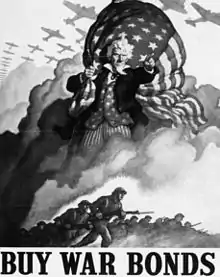

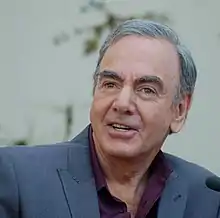
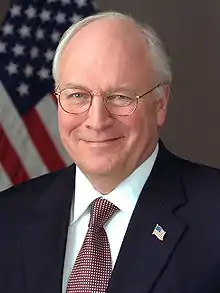
.jpg.webp)


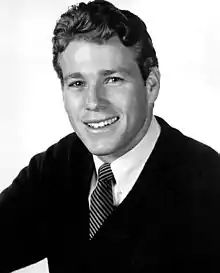

.jpg.webp)



.jpg.webp)



.jpg.webp)
.png.webp)

.jpg.webp)

_(cropped).jpg.webp)
